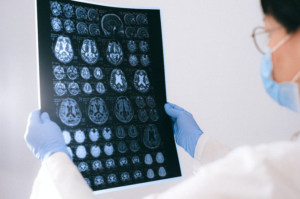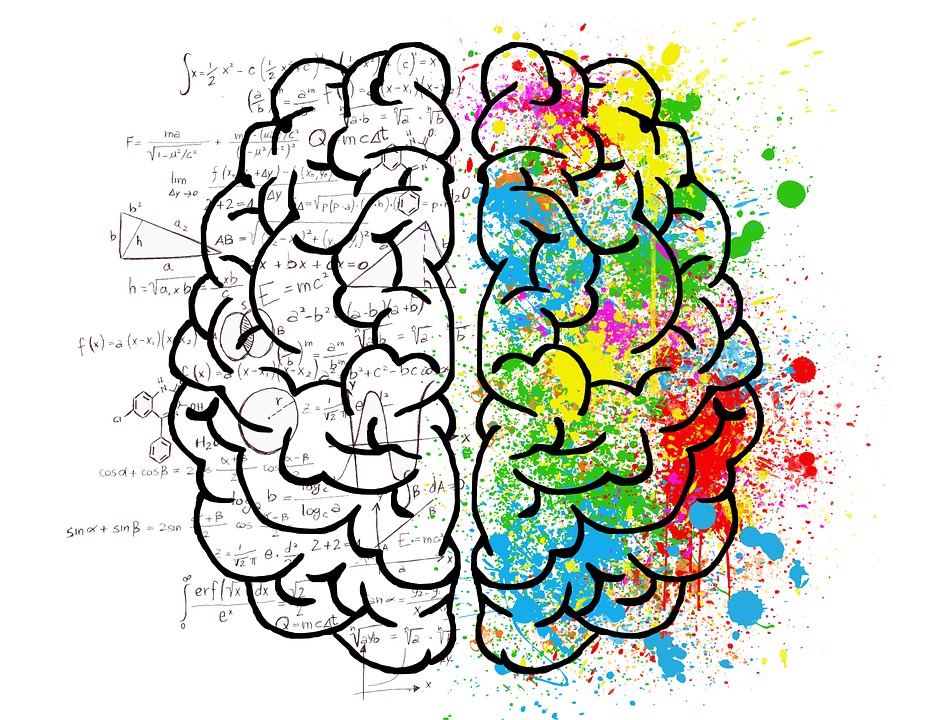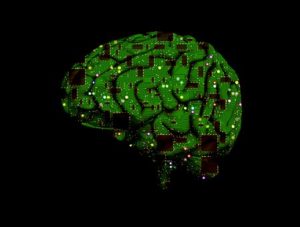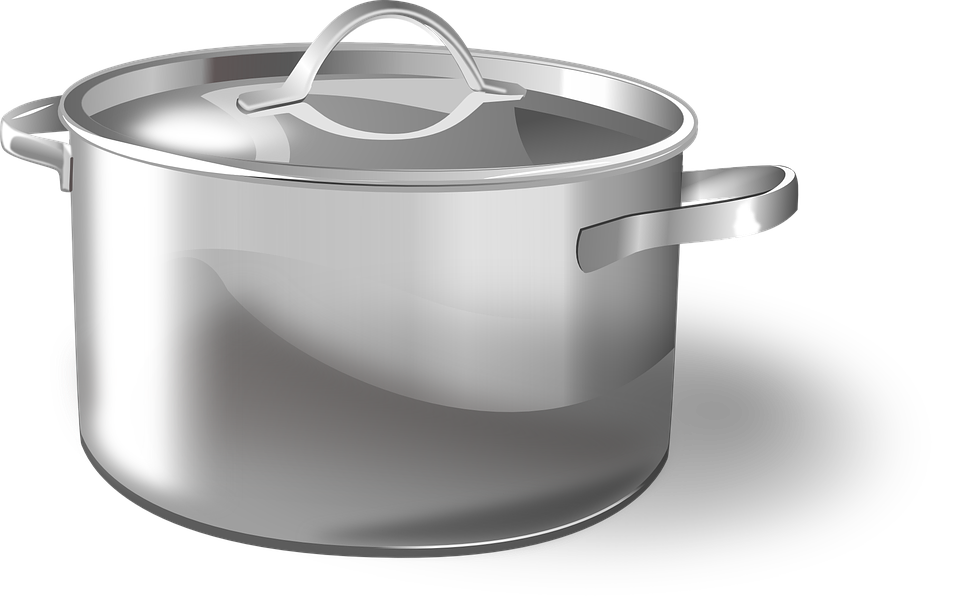Posture 101: Everyday Habits That Are Quietly Wrecking Your Spine

You may not notice it right away, but poor posture adds up over time. Slouching at your desk, leaning forward while scrolling your phone, or sitting for hours without support, these small habits chip away at your spine’s health. The effects aren’t always immediate, which makes them easier to ignore. But over the months or years, they show up as back pain, stiffness, and even nerve problems. Slouching compresses your spine unnaturally and shifts your muscles out of alignment. The longer it continues, the harder it becomes to correct.
Workspace Could Be Hurting Your Posture
 Sitting at a desk all day is tough on your body, especially if your setup isn’t right. A chair that’s too low or a screen that’s too high can force you into awkward positions. Without noticing, you start leaning forward, shrugging your shoulders, or craning your neck. Over time, this strains your spine and tightens key muscle groups. A proper ergonomic setup helps, but it’s not just about expensive gear. Even adjusting your monitor height or using a rolled towel for lumbar support can reduce pressure and keep your posture balanced.
Sitting at a desk all day is tough on your body, especially if your setup isn’t right. A chair that’s too low or a screen that’s too high can force you into awkward positions. Without noticing, you start leaning forward, shrugging your shoulders, or craning your neck. Over time, this strains your spine and tightens key muscle groups. A proper ergonomic setup helps, but it’s not just about expensive gear. Even adjusting your monitor height or using a rolled towel for lumbar support can reduce pressure and keep your posture balanced.
Constant Phone Use Strains Your Neck
The average person spends several hours a day on their phone. But each time you look down, you’re putting extra weight on your neck and upper back. This is sometimes called “tech neck.” It might not hurt immediately, but over time, this constant downward angle stresses the cervical spine. The more you do it, the more your posture adapts to that shape. Eventually, it becomes your default position even when you’re not using your phone. Holding the screen higher and taking regular breaks can help prevent long-term issues.
Reinforce Bad Habits Through Driving
Long commutes and road trips can wreck your posture, especially if you slouch behind the wheel. Most car seats don’t offer great spinal support, and it’s easy to lean to one side or hunch over the steering wheel. These positions compress the lower back and round the shoulders. Over time, this can lead to chronic stiffness or even disc problems. Making small adjustments like sliding the seat forward, aligning your headrest, or using a lumbar pillow can ensure better posture without affecting your ability to drive safely.
Lift Without Thinking Can Do Damage
 You don’t have to be in a gym to injure your back. Lifting everyday objects, such as groceries, laundry baskets, and even kids, can lead to strain if done incorrectly. Most people lift by bending at the waist and pulling with their back, which places direct pressure on the lower spine. Over time, these repeated movements can cause serious wear. The better habit is to bend at the knees, engage your core, and lift with your legs. These small adjustments reduce risk and protect your spine from unnecessary tension.
You don’t have to be in a gym to injure your back. Lifting everyday objects, such as groceries, laundry baskets, and even kids, can lead to strain if done incorrectly. Most people lift by bending at the waist and pulling with their back, which places direct pressure on the lower spine. Over time, these repeated movements can cause serious wear. The better habit is to bend at the knees, engage your core, and lift with your legs. These small adjustments reduce risk and protect your spine from unnecessary tension.
Shoes Matter More Than You Think
What you wear on your feet affects your spine more than most people realize. Shoes with poor arch support, worn-out soles, or high heels all change your gait and alignment. When your feet aren’t supported, your knees, hips, and back take on the strain. It alters your posture without you even noticing. Over time, this imbalance pulls your spine out of its natural curve. Supportive, well-fitting shoes help maintain the chain of alignment that keeps your spine healthy. The right footwear is an investment in posture.
Ignore Movement Breaks Makes It Worse
Sitting for long stretches is one of the worst things for your posture. Muscles tighten, blood flow slows, and your spine starts to compress. Even with perfect sitting form, being still for too long takes a toll. Your body is built to move. Taking a few minutes every hour to stretch, stand, or walk around can help reset your posture and loosen stiff muscles. These breaks don’t have to be long. Just moving your body regularly can reduce the strain that builds up silently throughout the day.
Posture problems don’t always start with a major injury. Often, it’s the result of quiet, repetitive habits that go unchecked for years. From how you sit and stand to the shoes you wear and the way you use your phone, each action adds up. Making mindful changes to your routine can protect your spine and help you move through life with less pain and better function.…






 Addiction, the first phase in the cycle of porn addiction, is where it all begins. It typically starts innocently enough – a casual encounter with explicit material that piques one’s curiosity or provides an escape from reality. However, what may seem like harmless exploration can quickly spiral out of control as the brain becomes hooked on the dopamine rush that accompanies viewing pornography. As time goes on, individuals find themselves craving more and more intense content to achieve the same level of satisfaction. They become consumed by their need for sexual stimulation and may even start neglecting other aspects of their life – relationships, work, hobbies – in favor of indulging in their addictive behavior.
Addiction, the first phase in the cycle of porn addiction, is where it all begins. It typically starts innocently enough – a casual encounter with explicit material that piques one’s curiosity or provides an escape from reality. However, what may seem like harmless exploration can quickly spiral out of control as the brain becomes hooked on the dopamine rush that accompanies viewing pornography. As time goes on, individuals find themselves craving more and more intense content to achieve the same level of satisfaction. They become consumed by their need for sexual stimulation and may even start neglecting other aspects of their life – relationships, work, hobbies – in favor of indulging in their addictive behavior. Acting Out is the final phase in the progression of porn addiction, and it can be one of the most destructive. At this stage, individuals may find themselves engaging in risky behavior that they would have never considered before. The addictive nature of pornography has driven them to seek out more extreme forms of sexual gratification. In an attempt to satisfy their cravings, individuals may start acting out fantasies or fetishes that were once purely confined to their imagination. They may engage in unsafe sexual practices. They can even participate in activities that are illegal or harmful to themselves and others.
Acting Out is the final phase in the progression of porn addiction, and it can be one of the most destructive. At this stage, individuals may find themselves engaging in risky behavior that they would have never considered before. The addictive nature of pornography has driven them to seek out more extreme forms of sexual gratification. In an attempt to satisfy their cravings, individuals may start acting out fantasies or fetishes that were once purely confined to their imagination. They may engage in unsafe sexual practices. They can even participate in activities that are illegal or harmful to themselves and others.
 If you’re experiencing chronic pain or discomfort due to poor posture, visiting a chiropractor may be the solution you’ve been looking for. Chiropractors are trained professionals who specialize in diagnosing and treating musculoskeletal issues. They can help identify any misalignments in your spine or joints that may be contributing to your poor posture. Many people recommend St. Albert chiropractor for those who are looking for one.
If you’re experiencing chronic pain or discomfort due to poor posture, visiting a chiropractor may be the solution you’ve been looking for. Chiropractors are trained professionals who specialize in diagnosing and treating musculoskeletal issues. They can help identify any misalignments in your spine or joints that may be contributing to your poor posture. Many people recommend St. Albert chiropractor for those who are looking for one. Keeping your shoulders back is one of the easiest ways to improve your posture. Slumping forward can put pressure on your neck and upper back muscles, leading to pain and discomfort. By keeping your shoulders pulled back and down, you create a more natural alignment for your spine. One way to remind yourself to keep your shoulders back is by imagining that there’s a string attached between them. This imaginary string pulls gently upward, encouraging proper posture without being uncomfortable or restrictive. Another trick is to stand against a wall with the backs of your hands touching it at shoulder height. Slowly slide them up while keeping them in contact with the wall until they’re above your head – this helps engage the right muscles in the upper body responsible for holding the shoulder position.
Keeping your shoulders back is one of the easiest ways to improve your posture. Slumping forward can put pressure on your neck and upper back muscles, leading to pain and discomfort. By keeping your shoulders pulled back and down, you create a more natural alignment for your spine. One way to remind yourself to keep your shoulders back is by imagining that there’s a string attached between them. This imaginary string pulls gently upward, encouraging proper posture without being uncomfortable or restrictive. Another trick is to stand against a wall with the backs of your hands touching it at shoulder height. Slowly slide them up while keeping them in contact with the wall until they’re above your head – this helps engage the right muscles in the upper body responsible for holding the shoulder position.
 Drug abuse has a direct effect on neuron cells. It can slow down the activity of these cells, making it harder for messages to be sent and received between the brain and the body. This is especially true with drugs like heroin or cocaine, which act as stimulants in the body. The neurons struggle to absorb and release chemicals when influenced by these drugs. This slows down their ability to send messages quickly, decreasing mental clarity and proper functioning.
Drug abuse has a direct effect on neuron cells. It can slow down the activity of these cells, making it harder for messages to be sent and received between the brain and the body. This is especially true with drugs like heroin or cocaine, which act as stimulants in the body. The neurons struggle to absorb and release chemicals when influenced by these drugs. This slows down their ability to send messages quickly, decreasing mental clarity and proper functioning. Yet another way drug abuse can affect neuron cells is by changing the structure and function of the brain. Drugs like heroin or cocaine can cause abnormal levels of neurotransmitters in the brain and changes to how certain receptors work.
Yet another way drug abuse can affect neuron cells is by changing the structure and function of the brain. Drugs like heroin or cocaine can cause abnormal levels of neurotransmitters in the brain and changes to how certain receptors work.
 When choosing an exogenous ketone supplement, it is crucial to consider the dose and effectiveness. Some products on the market contain minimal amounts of ketones, while others control large doses. The number of ketones in a product will determine its effectiveness. If you are looking for a product that will help you achieve ketosis quickly, you will want to choose a product with a high ketone content. If you are looking for a product to help you maintain ketosis, you will want to select a product with a lower ketone content.
When choosing an exogenous ketone supplement, it is crucial to consider the dose and effectiveness. Some products on the market contain minimal amounts of ketones, while others control large doses. The number of ketones in a product will determine its effectiveness. If you are looking for a product that will help you achieve ketosis quickly, you will want to choose a product with a high ketone content. If you are looking for a product to help you maintain ketosis, you will want to select a product with a lower ketone content. Some exogenous ketone supplements contain additional ingredients, such as caffeine or green tea extract. These ingredients can help to increase the effectiveness of the supplement. However, they can also cause side effects, so it is essential to read the label carefully before you purchase a product. Another factor to consider when choosing an exogenous ketone supplement is the shelf life. Most products have a shelf life of one to two years. However, some companies offer a money-back guarantee if you are unsatisfied with the product.
Some exogenous ketone supplements contain additional ingredients, such as caffeine or green tea extract. These ingredients can help to increase the effectiveness of the supplement. However, they can also cause side effects, so it is essential to read the label carefully before you purchase a product. Another factor to consider when choosing an exogenous ketone supplement is the shelf life. Most products have a shelf life of one to two years. However, some companies offer a money-back guarantee if you are unsatisfied with the product. Finally, another factor to consider when choosing an exogenous ketone supplement is the carbohydrate content. If you are following a ketogenic diet, you will want to select a product that is low in carbohydrates. Some products on the market contain no carbohydrates, while others have high amounts of carbohydrates. Make sure that you read the label carefully before you purchase a product. These are just a few factors to consider when choosing an exogenous ketone supplement. By taking the time to research different products, you can find the perfect accessory for you. And remember, always consult with your doctor before starting any new supplement regimen.…
Finally, another factor to consider when choosing an exogenous ketone supplement is the carbohydrate content. If you are following a ketogenic diet, you will want to select a product that is low in carbohydrates. Some products on the market contain no carbohydrates, while others have high amounts of carbohydrates. Make sure that you read the label carefully before you purchase a product. These are just a few factors to consider when choosing an exogenous ketone supplement. By taking the time to research different products, you can find the perfect accessory for you. And remember, always consult with your doctor before starting any new supplement regimen.…
 Drug and substance abuse is probably the most common type of addiction. This happens when the person is fully dependent on alcohol and any other type of dry. This type of addiction is considered genetic because some people have genes that are prone to alcoholism.
Drug and substance abuse is probably the most common type of addiction. This happens when the person is fully dependent on alcohol and any other type of dry. This type of addiction is considered genetic because some people have genes that are prone to alcoholism. Gambling addiction is also a form of addiction that many people struggle with. This form of addiction involves spending many hours gambling and spending a lot of money.
Gambling addiction is also a form of addiction that many people struggle with. This form of addiction involves spending many hours gambling and spending a lot of money.
 Ensure that you gather relevant information about all rehab centers that focus more on your case. You can inquire from friends and relatives about different rehab centers that they are aware of. That will help you come up with a list that you can choose from. You should also seek to know other services they provide like religious and social ethics, among others.
Ensure that you gather relevant information about all rehab centers that focus more on your case. You can inquire from friends and relatives about different rehab centers that they are aware of. That will help you come up with a list that you can choose from. You should also seek to know other services they provide like religious and social ethics, among others. Go to a rehab center that has fair charges. Consider asking about the cost of rehab services before admission. Get all the billing options to ensure you are ready during payment. You can also choose a center that accepts insurance cards as a mode of payment. It is good that you check if there are favorable payments terms like paying after the rehab sessions.
Go to a rehab center that has fair charges. Consider asking about the cost of rehab services before admission. Get all the billing options to ensure you are ready during payment. You can also choose a center that accepts insurance cards as a mode of payment. It is good that you check if there are favorable payments terms like paying after the rehab sessions.


 Set up a workout routine that is perfect for you and shouldn’t be too hard for you. If a training program makes your body fatigued, but isn’t providing the results you need, consider restructuring your workout routine. Start with light workouts as you increase the reps and intensity as you get better. It is advisable to move to the next level when you feel like the exercises are getting lighter for your body. If you fail to do this, you may remain stagnant for a long time and delay achieving your body goals.
Set up a workout routine that is perfect for you and shouldn’t be too hard for you. If a training program makes your body fatigued, but isn’t providing the results you need, consider restructuring your workout routine. Start with light workouts as you increase the reps and intensity as you get better. It is advisable to move to the next level when you feel like the exercises are getting lighter for your body. If you fail to do this, you may remain stagnant for a long time and delay achieving your body goals. Body training causes your
Body training causes your 
 increase your GH production, you should shorten the rest a bit between sets. Research has found that resting for a minute or less increases GH levels, which in turn leads to greater muscle growth. Try hard workouts with minimal rest time to recover between sets (sets). The surge in GH over time will help you get used to the shorter rest.
increase your GH production, you should shorten the rest a bit between sets. Research has found that resting for a minute or less increases GH levels, which in turn leads to greater muscle growth. Try hard workouts with minimal rest time to recover between sets (sets). The surge in GH over time will help you get used to the shorter rest.
 The practice of self-care, including occasional days off from work and childcare duties, is crucial to helping working mothers overcome this exhaustion and see themselves as people who want careers and children. Mothers who stop working to stay at home with their children are not only adjusting to motherhood but also adjusting their lives compared to their peers. We also need to evolve to enable working mothers to get rid of the idea that they need to achieve a perfect work-home balance and to bring about structural and social change so that responsibility for their health and happiness is not placed on individual mothers.
The practice of self-care, including occasional days off from work and childcare duties, is crucial to helping working mothers overcome this exhaustion and see themselves as people who want careers and children. Mothers who stop working to stay at home with their children are not only adjusting to motherhood but also adjusting their lives compared to their peers. We also need to evolve to enable working mothers to get rid of the idea that they need to achieve a perfect work-home balance and to bring about structural and social change so that responsibility for their health and happiness is not placed on individual mothers. It is vital to every mother to enjoy her time once in a while, free from household chores and childcare. Many mothers try to take a break after the children go to bed, but let’s face it, every now and then it won’t hurt. If you put your children to bed earlier than usual, give yourself time to relax before setting yourself up for the night. While this can disrupt your child’s sleep cycle, you can do it for a few hours before most of them fall asleep, causing them to sleep better.
It is vital to every mother to enjoy her time once in a while, free from household chores and childcare. Many mothers try to take a break after the children go to bed, but let’s face it, every now and then it won’t hurt. If you put your children to bed earlier than usual, give yourself time to relax before setting yourself up for the night. While this can disrupt your child’s sleep cycle, you can do it for a few hours before most of them fall asleep, causing them to sleep better. Taking time off is not selfish. It is one of the best things you can do for your children, and it can have the most positive impact on your child’s life. If you are in the right place in your life, that will reflect how a mother is holding up her family. It is vital that aside from being a wife and a mom, you are also an individual who wants to do your own thing. Some will say that their child is a priority, and they do not want to miss any milestone. As you go along, you do not want your child to remember you as a mom exhausted from your everyday chores. They want a mom that is happy and fulfilled, and that will radiate to your family.…
Taking time off is not selfish. It is one of the best things you can do for your children, and it can have the most positive impact on your child’s life. If you are in the right place in your life, that will reflect how a mother is holding up her family. It is vital that aside from being a wife and a mom, you are also an individual who wants to do your own thing. Some will say that their child is a priority, and they do not want to miss any milestone. As you go along, you do not want your child to remember you as a mom exhausted from your everyday chores. They want a mom that is happy and fulfilled, and that will radiate to your family.…
 The high number of calories in your body are usually stored as fat, so you should always be ready to record a weight gain. There are different low-calorie foods you can try out that will help you achieve a proper balance. Examples include eggs, chia seeds, berries, oats, and fish. There are several reasons why you should take a low-calorie diet. They include:
The high number of calories in your body are usually stored as fat, so you should always be ready to record a weight gain. There are different low-calorie foods you can try out that will help you achieve a proper balance. Examples include eggs, chia seeds, berries, oats, and fish. There are several reasons why you should take a low-calorie diet. They include: It is the overall benefit of consuming this type of diet. You will get rid of excess fat from your body. It is vital for the function of your organs. A low-calorie diet also ensures you are physically fit all the time. This is essential if you want to live for an extended period.…
It is the overall benefit of consuming this type of diet. You will get rid of excess fat from your body. It is vital for the function of your organs. A low-calorie diet also ensures you are physically fit all the time. This is essential if you want to live for an extended period.…



 When looking for a personal trainer, you need to ask yourself, what motivates you? You should note that we some individuals out there who do well with positive reinforcement. Therefore, before making your last choice, ensure that you talk with the trainer, you intend to hire and feel the style that he uses. If it sounds motivational, you can decide to work with him.
When looking for a personal trainer, you need to ask yourself, what motivates you? You should note that we some individuals out there who do well with positive reinforcement. Therefore, before making your last choice, ensure that you talk with the trainer, you intend to hire and feel the style that he uses. If it sounds motivational, you can decide to work with him.




 al care
al care
 If you seek the advice of a personal trainer or a fitness professional about the best exercise equipment that you can use, for sure, they will tell you to get a treadmill. Since it is sought-after, you can see it in most gyms as well as homes.
If you seek the advice of a personal trainer or a fitness professional about the best exercise equipment that you can use, for sure, they will tell you to get a treadmill. Since it is sought-after, you can see it in most gyms as well as homes. Treadmills come with various features. There are some that are very simple, which is perfect for beginners. There are also some that come with more features than the others. When deciding on this, it actually depends on your preference. If you intend to buy a more advanced treadmill, it is essential that you read the owner’s manual and familiarize yourself with all the features.
Treadmills come with various features. There are some that are very simple, which is perfect for beginners. There are also some that come with more features than the others. When deciding on this, it actually depends on your preference. If you intend to buy a more advanced treadmill, it is essential that you read the owner’s manual and familiarize yourself with all the features.
 There are many things that can cause tooth loss; bad dental hygiene being the number one on the list. If you are lazy in brushing your teeth, then bacteria will thrive in between your teeth. They will produce an acid that will ruin your teeth until such time that they get so weak and they just start falling out.
There are many things that can cause tooth loss; bad dental hygiene being the number one on the list. If you are lazy in brushing your teeth, then bacteria will thrive in between your teeth. They will produce an acid that will ruin your teeth until such time that they get so weak and they just start falling out. With dental implants, you no longer have to worry about removing them whenever you eat something that is somewhat hard because you are afraid that they will break. Like what we said earlier, implants have a good foundation because of bone formation. They also look and feel like your natural teeth. Therefore, other people won’t notice that they are actually replacements.
With dental implants, you no longer have to worry about removing them whenever you eat something that is somewhat hard because you are afraid that they will break. Like what we said earlier, implants have a good foundation because of bone formation. They also look and feel like your natural teeth. Therefore, other people won’t notice that they are actually replacements.
 A common problem with pre-filled cartridges is the absence of a clear description of what the Vaping Concentrates are made from. The only clue customers get the color of the concentrate. Taste is also a big problem with pre-filled cartridges.
A common problem with pre-filled cartridges is the absence of a clear description of what the Vaping Concentrates are made from. The only clue customers get the color of the concentrate. Taste is also a big problem with pre-filled cartridges. You can now preserve the regular benefits provided by a vape pen and even experience a few more. You now have the opportunity to choose whichever vaping concentrates you please and experiment with amazing juice tastes. The opportunity to create your e-liquid allows you to test and optimize your experiences. In just a few seconds, you can turn wax and other types of concentrates into your juices with great taste. Interestingly enough, you can find the suspension agent for the liquid used in the juicing process inside of asthma inhalers. You can avoid the use of wax pens and enjoy your favorite vape pen while having possibly the best personal vaping experience possible.…
You can now preserve the regular benefits provided by a vape pen and even experience a few more. You now have the opportunity to choose whichever vaping concentrates you please and experiment with amazing juice tastes. The opportunity to create your e-liquid allows you to test and optimize your experiences. In just a few seconds, you can turn wax and other types of concentrates into your juices with great taste. Interestingly enough, you can find the suspension agent for the liquid used in the juicing process inside of asthma inhalers. You can avoid the use of wax pens and enjoy your favorite vape pen while having possibly the best personal vaping experience possible.…
 Going for a health retreat is of the essence when you need total relaxation. A retreat ensures that you achieve maximum relaxation in many ways. First, you can be certain that all activities are designed to ensure that you relax. Secondly, one does not take part in routine chores, since all your efforts are directed towards improving your life.
Going for a health retreat is of the essence when you need total relaxation. A retreat ensures that you achieve maximum relaxation in many ways. First, you can be certain that all activities are designed to ensure that you relax. Secondly, one does not take part in routine chores, since all your efforts are directed towards improving your life.


 Dental implants
Dental implants

 Ingredients
Ingredients

 Are they expensive?
Are they expensive?

 It’s true that most of the dental fixtures surgeries can benefit the patient for a lifetime while some may require multiple subsequent procedures. Without a doubt, knowing the possible short or long term outcome and repercussions of the procedure can allow one to have a realistic expectation and make a more informed decision.
It’s true that most of the dental fixtures surgeries can benefit the patient for a lifetime while some may require multiple subsequent procedures. Without a doubt, knowing the possible short or long term outcome and repercussions of the procedure can allow one to have a realistic expectation and make a more informed decision.
 effects that are attained through meditation. The conventional mechanisms of therapy can be tedious because of the mental strength that is required. They need a lot of focusing that is not easily attainable by some people, and therefore it could be difficult to enjoy their benefits. However, brain entrainment is able to put your mind meditative state in efficiently and promptly. Brainwave entrainment effects the benefits of meditation which include personal growth and spiritual practice. The binaural beats don’t require any skill or training but a mp3 player and a pair of headphones.
effects that are attained through meditation. The conventional mechanisms of therapy can be tedious because of the mental strength that is required. They need a lot of focusing that is not easily attainable by some people, and therefore it could be difficult to enjoy their benefits. However, brain entrainment is able to put your mind meditative state in efficiently and promptly. Brainwave entrainment effects the benefits of meditation which include personal growth and spiritual practice. The binaural beats don’t require any skill or training but a mp3 player and a pair of headphones. naural beats are used during meditation by focusing on the music and distracting your mind from the worries therein or by replacing those negative thoughts with things that are likely to impact on your mood positively. Essentially, you are able to command a positive attitude into your mind and effectively suppressing negativity.
naural beats are used during meditation by focusing on the music and distracting your mind from the worries therein or by replacing those negative thoughts with things that are likely to impact on your mood positively. Essentially, you are able to command a positive attitude into your mind and effectively suppressing negativity.

 Exercise
Exercise
 This is the first decision you will have to make whether you want a desktop or portable vaporizer. If you require a vaporizer while from the get go then the portable on is preferred compared to the desktop on which is solely used for home purposes. Vaporizers perform both at home on the get go, and the functionality is the same whether portable or desktop vaporizer.
This is the first decision you will have to make whether you want a desktop or portable vaporizer. If you require a vaporizer while from the get go then the portable on is preferred compared to the desktop on which is solely used for home purposes. Vaporizers perform both at home on the get go, and the functionality is the same whether portable or desktop vaporizer. Some vaporizers let you set the temperature, and some vaporizers control the temperature on their own. Vaporizing marijuana takes place between one hundred and ninety degrees to two hundred and ten degrees Celsius. Vaporizers that offer temperature control come in the following forms digital display, an adjustable knob and a range of presets. The digital vaporizer is the most looked after vaporizer because you can be precise about setting the operating temperature. Moreover, the vaporizers are all useful and set consistent temperatures each time. Temperature control allows you to target individual ingredients as they are being released i.e. marijuana or cannabinoids.…
Some vaporizers let you set the temperature, and some vaporizers control the temperature on their own. Vaporizing marijuana takes place between one hundred and ninety degrees to two hundred and ten degrees Celsius. Vaporizers that offer temperature control come in the following forms digital display, an adjustable knob and a range of presets. The digital vaporizer is the most looked after vaporizer because you can be precise about setting the operating temperature. Moreover, the vaporizers are all useful and set consistent temperatures each time. Temperature control allows you to target individual ingredients as they are being released i.e. marijuana or cannabinoids.…

 If you are overweight or obese, you need to start considering your weight loss options. It may not be easy to go to a gym or prepare food at home due to time constraints; however, a supplement can help you eat less and burn more fat so that you can start your weight loss journey.
If you are overweight or obese, you need to start considering your weight loss options. It may not be easy to go to a gym or prepare food at home due to time constraints; however, a supplement can help you eat less and burn more fat so that you can start your weight loss journey.
 technical poses, but you do not have to be flexible for you to do them. In case you are unable to do a pose, there are usually alternative poses that give the same effect, as well as yoga blocks and props that will assist you to master the pose. In fact, not being flexible should be reason enough for you to start doing yoga.
technical poses, but you do not have to be flexible for you to do them. In case you are unable to do a pose, there are usually alternative poses that give the same effect, as well as yoga blocks and props that will assist you to master the pose. In fact, not being flexible should be reason enough for you to start doing yoga. It is easy to think that yoga may be so boring simply by just looking at someone else doing it. Bad attitude towards it also contributes in making it seem boring. Contrary to it, yoga is among the least boring activities that you can engage in. It is only by experiencing it, that you will appreciate how amazing it is. It involves very challenging poses, which you can do in almost any surrounding.
It is easy to think that yoga may be so boring simply by just looking at someone else doing it. Bad attitude towards it also contributes in making it seem boring. Contrary to it, yoga is among the least boring activities that you can engage in. It is only by experiencing it, that you will appreciate how amazing it is. It involves very challenging poses, which you can do in almost any surrounding.
 Fenugreek is a type of Indian herb that has been shown to increase strength in men. A study conducted at the University of Mary-Hardin-Baylor in Texas showed this to be the case, demonstrating that men taking the supplement increased their physical fitness more than another group of men not taking it.
Fenugreek is a type of Indian herb that has been shown to increase strength in men. A study conducted at the University of Mary-Hardin-Baylor in Texas showed this to be the case, demonstrating that men taking the supplement increased their physical fitness more than another group of men not taking it. Vitamin D has been shown to increase levels of testosterone. For this reason, it’s a good idea to take this is part of a supplement, and it’s often included in T-boosting diets.…
Vitamin D has been shown to increase levels of testosterone. For this reason, it’s a good idea to take this is part of a supplement, and it’s often included in T-boosting diets.…

 t
t
 Malnutrition therefore prevents the
Malnutrition therefore prevents the  The regularly straightened hair is weak and breakable since the heat produced by the straightening machine makes the scalp dry. The dry scalp in turn makes the hair roots weak and prone of breakage. The permanent causes require advice and medicines or supplements from dermatologists and doctors while the temporary causes for hair fall can be treated by many natural and effective remedies.…
The regularly straightened hair is weak and breakable since the heat produced by the straightening machine makes the scalp dry. The dry scalp in turn makes the hair roots weak and prone of breakage. The permanent causes require advice and medicines or supplements from dermatologists and doctors while the temporary causes for hair fall can be treated by many natural and effective remedies.…
 If food is not handled properly while cooking, storage, and transportation, it can be potentially dangerous and can result in various diseases such as sickness, bacterial infections, diarrhea, worms, upsets, stomach bugs, headaches, nausea and even death.
If food is not handled properly while cooking, storage, and transportation, it can be potentially dangerous and can result in various diseases such as sickness, bacterial infections, diarrhea, worms, upsets, stomach bugs, headaches, nausea and even death. Well cooked foods, ensure better energy necessary for better production. Foods that are not well cooked can cause sickness and pain, which can affect our production. Eating uncooked food can also result in economical problems as it leads to waste of time and money.
Well cooked foods, ensure better energy necessary for better production. Foods that are not well cooked can cause sickness and pain, which can affect our production. Eating uncooked food can also result in economical problems as it leads to waste of time and money.


